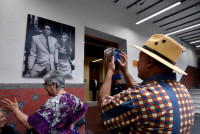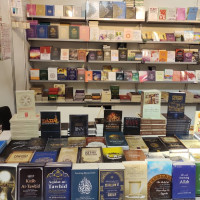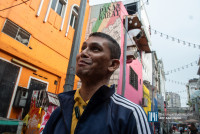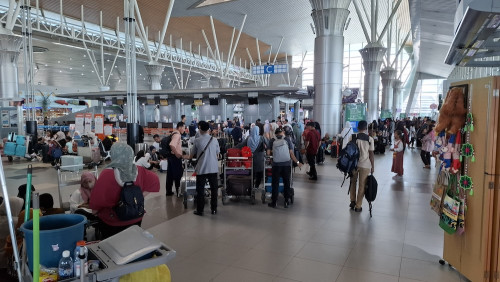IN 1967, the great Austrian poet Ilse Aichinger wrote a collection of short prose writings which she prefaced with a startling intimation of the German language, the language of her poetic landscape: “My language is one that tends towards foreign words. I choose them, I retrieve them from far away. But it is a small language. It doesn’t reach far. All around, all around me, always all around and so forth.”
The aphoristic opening statement to this collection was the foremost linguistic exigency haunting many postwar German-language writers, especially those of Jewish ancestry like Aichinger, who had to wrestle and chart new a course with the same language that promulgated the horrors witnessed in the Holocaust.
Over 40 years later, another evocative voice of modern German poetry would again ponder this question of estrangement, dislocation, and the hidden impositions embedded in one’s native tongue. This young poet is Lea Schneider, whom I had the privilege of speaking to in our podcast session for the George Town Literary Festival, where she generously shared her early awakenings as a poet, and her current role as a translator of contemporary Mandarin poetry into German.
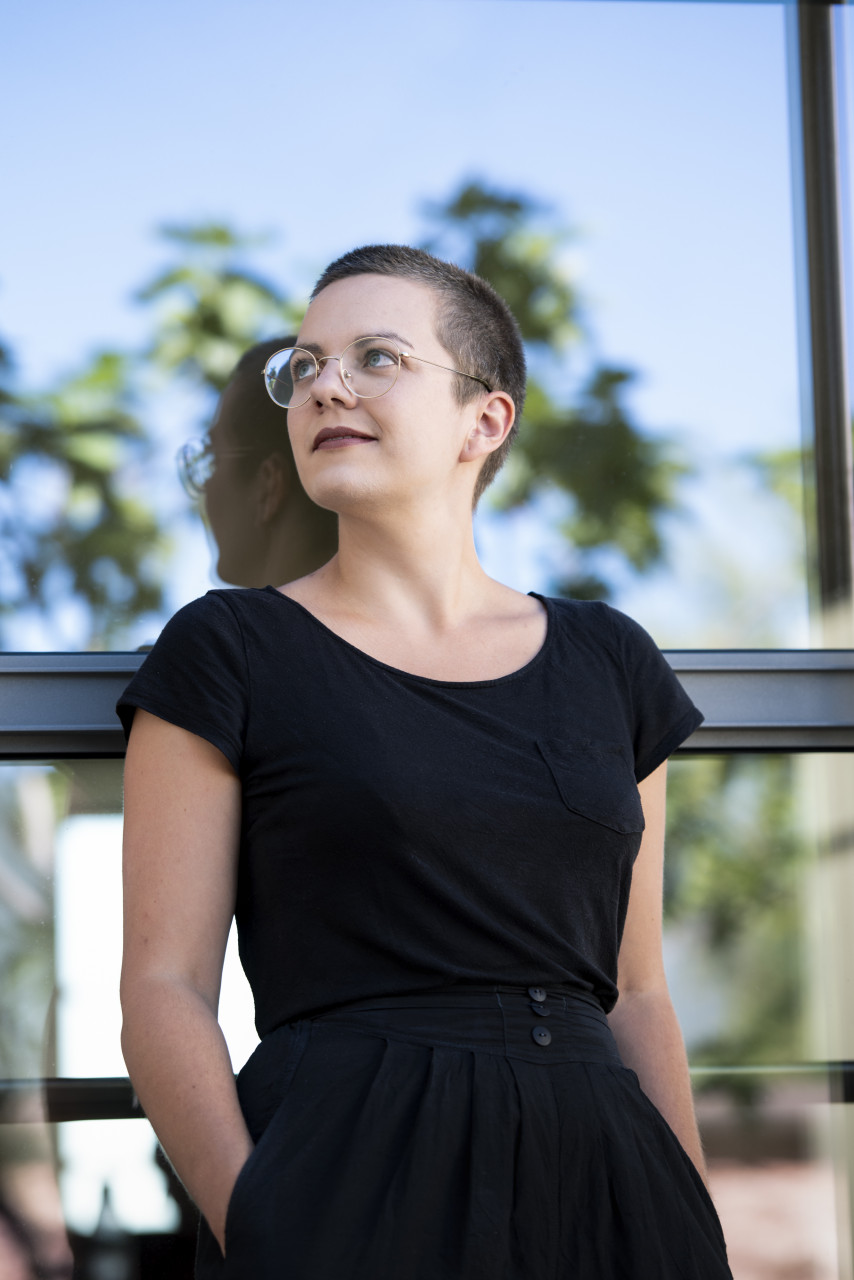
Incidentally, Lea was born at the juncture of a watershed in her country, just four months prior to the historic fall of the Berlin Wall. Aside from her unique whirlwind poetic style, this detail of her birth intrigued me greatly going into our conversation. Could Time have had a hand in shaping Lea’s poetic self, straddling between Mandarin and German, East and West, the Self and the Other?
When I posed this question to Lea in our discussion, her depth of response in searching and revisiting alternative voices to the German poetic scene in the post-reunification era is an iteration of her approach to her own poetry. Through Mandarin, a language she was introduced to in high school, then later mastered by studying and living in different parts of the Chinese-speaking world, a two-fold germination occurred: as the student came of age away from home, so too did the poet-translator evolve beyond her mother tongue. In Mandarin, Lea found new horizons in expressing what German could not offer due to the weight of its lexical history imbued with colonial violence and stereotypes in describing the “Other”.
The bulk of our conversation centered on the premise of “language as subconscious”, a thematic recurrence in Lea’s work. Poets have long used language as a medium for world-building, to find beauty in strife, and to ruminate on the indefinable beyond everyday speech. The possibility of transcendence, however, does not absolve language from its underlying power structures, tensions, and ironies. Lea’s debut collection in 2014, Invasion in Reverse, which won the coveted Dresden Poetry Prize, shrewdly probes into how language acquires power in mainstream discourse through a series of disorienting prose poetry that is almost essayistic, influenced by the Chinese scene. Eminent Chinese poet Xi Chuan, whose poems Lea has translated, termed her work as ‘poessays’, a style that has become a trademark of hers, where prose poems are not the norm in the German poetic tradition.
As a reader of Lea’s work, I was only able to engage with the English version of the original German by translator Bradley Schmidt, who was awarded with Honorable Mentions at the 2019 Cliff Becker Prize Book Prize in Translation for his masterful handling of Lea’s poems. Upon reading them, I was immediately struck by the sensation of spiraling towards an unknown territory that had neither entrance nor exit. This is what makes Lea’s poetry simultaneously refreshing and jarring: the vast topography of her poetic landscape jumps between rooms littered with the banality of everyday materialism, and the larger, imposing forces of the state, a subtle but persistent underflow that is always present between the lines.
“Every room contains at least one danger for utopia,” Lea writes, and readers are hurtled towards this prospect through a momentum created between the interplay of mental associations and phantasmagoric imagery that seemingly have no contexts, evoking a sense of falling down a rabbit hole that one cannot escape from, which is further intensified by the block-like structure of her prose poetry on the printed page. These are not sly word plays purely for aesthetic reasons, however, as Lea deftly turns language and meaning on its head to subvert our reading of her poems. Each word we think we understand carries the danger of misinterpretation, and she harnesses the multifaceted and deceptive nature of hermeneutics, inviting us to question our own relationship to our lived and imagined realities that are heavily shaped by language.
Reading Lea’s work, one is convinced that there is none more apt to voice the extremities of profound discomposure that isolation has imposed in a time of collective apprehension than her embodiment as a poet and translator. Serving as intermediary between German and Mandarin, the personal and political, the said and unsaid, perhaps here lies the potential answer to Aichinger’s “small language” retrieved from a distance.
By intermixing the two languages, whether through her translations of Chinese poetry, or weaving Mandarin transliterations into German verses, Lea opens up a bridge towards a new trajectory in contemporary European poetry of her generation. In Lea’s own words: “what’s most important: / finding no end, but instead a mistake in the plot that i can / embellish. a hiding place in the cliffhanger, in continual / references, back and forth.” Faced with a global pandemic and uprisings where the Other is increasingly scrutinized, a constant re-reading of the Self and the world around us is more pressing than ever.
Lea spoke of the Freudian notion of unheimlich (“uncanny”), that frightening sensation pulling us back to the safer familiar, which she told me translates more literally to “unhomely”. Perhaps there is more truth to her explanation of the term. The open-endedness of Lea Schneider’s interrogation into language in her poetry offers radical possibilities to imagine a world untethered by presumptions, a balm much needed in finding equilibrium after the irrevocable shifts that we have witnessed this year. – The Vibes, December 20, 2020
*All poetry excerpts by Lea Schneider are translated by Bradley Schmidt.
*Excerpts by Ilse Aichinger are translated by Uljana Wolf and Christian Hawkey, taken from 'Bad Words' (Seagull Books, 2018)




.jpg)


